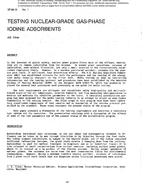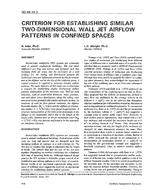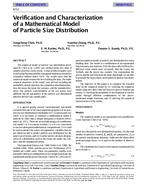Commercial kitchen DCV systems can offer great energy savings to the end user when properly implemented. This article discusses the results of laboratory testing for common appliances in the commercial kitchen to evaluate system performance when equipped with various DCV algorithms: operating at a fixed exhaust setpoint temperature, operating on a temperature curve to increase exhaust airflow proportional to the temperature difference between exhaust and space temperature and operating on a temperature curve in combination with a cooking activity sensor (CAS) to drive the system to design when cooking is detected. Additionally, an evaluation was done to determine energy savings for a DCV system with balancing dampers installed on a four exhaust hood, island configuration.
Product Details
- Published:
- 2012
- Number of Pages:
- 13
- File Size:
- 1 file , 1.5 MB
- Product Code(s):
- D-AJ12Nov02
- Note:
- This product is unavailable in Russia, Belarus


